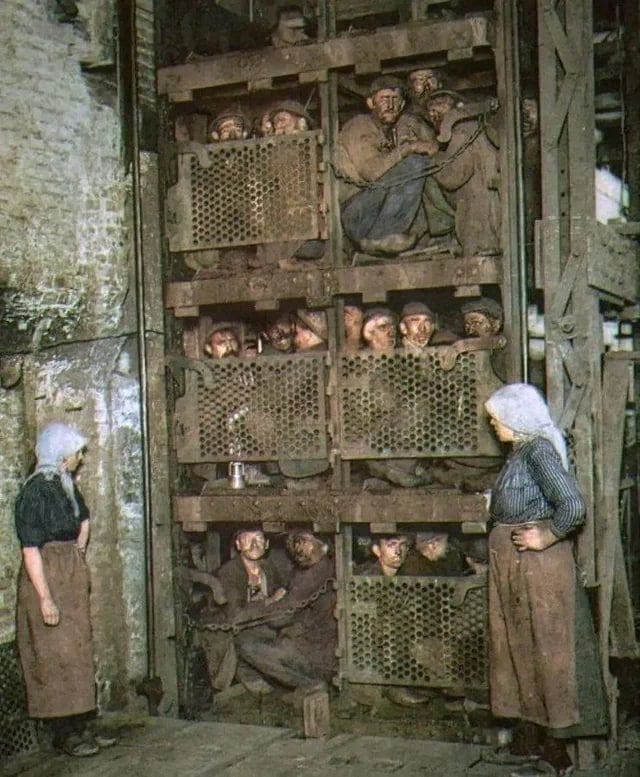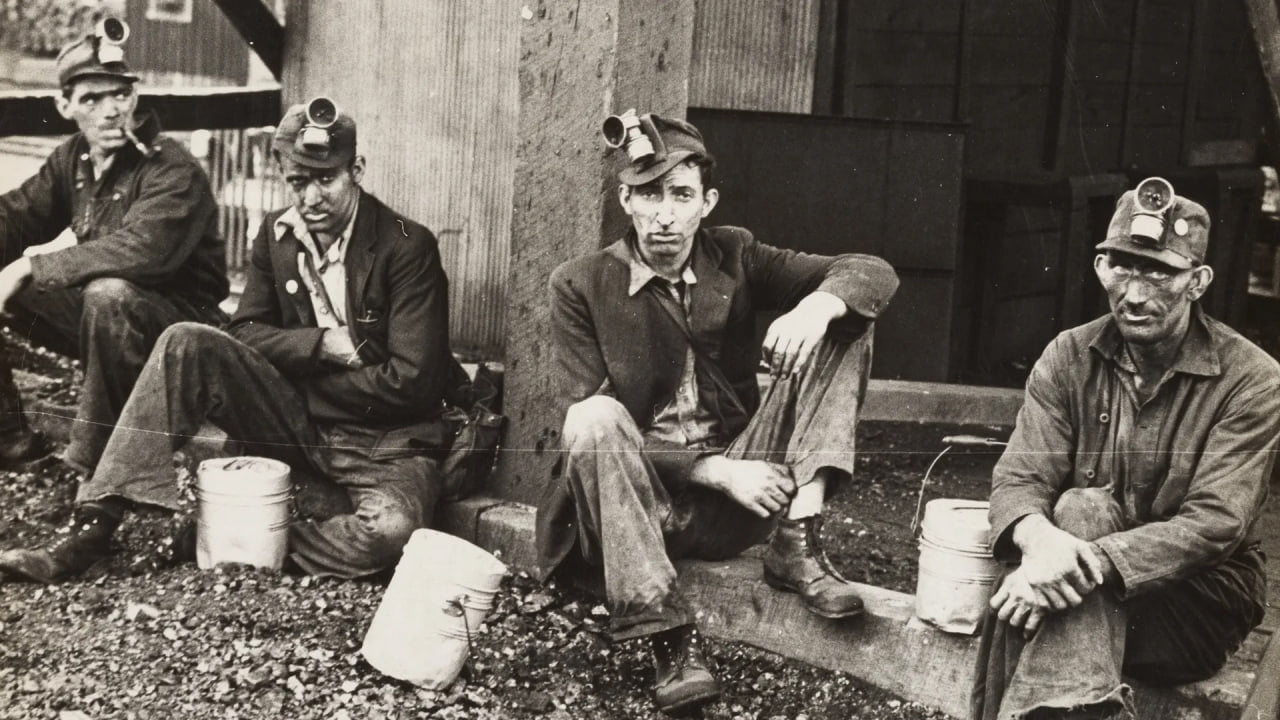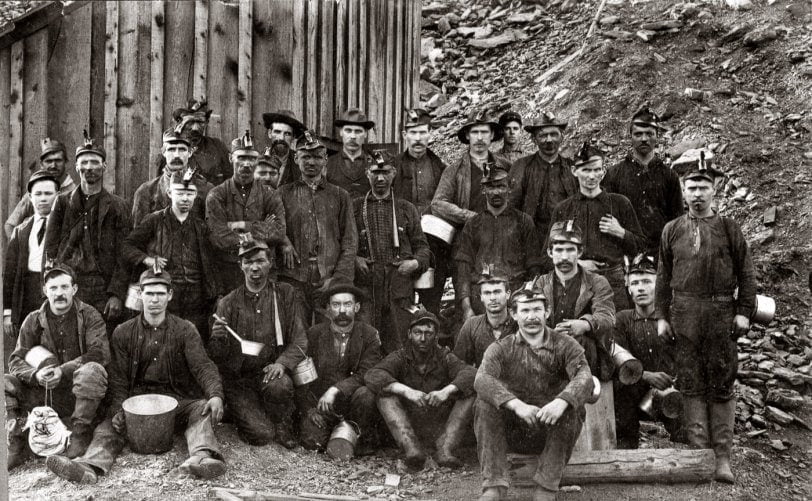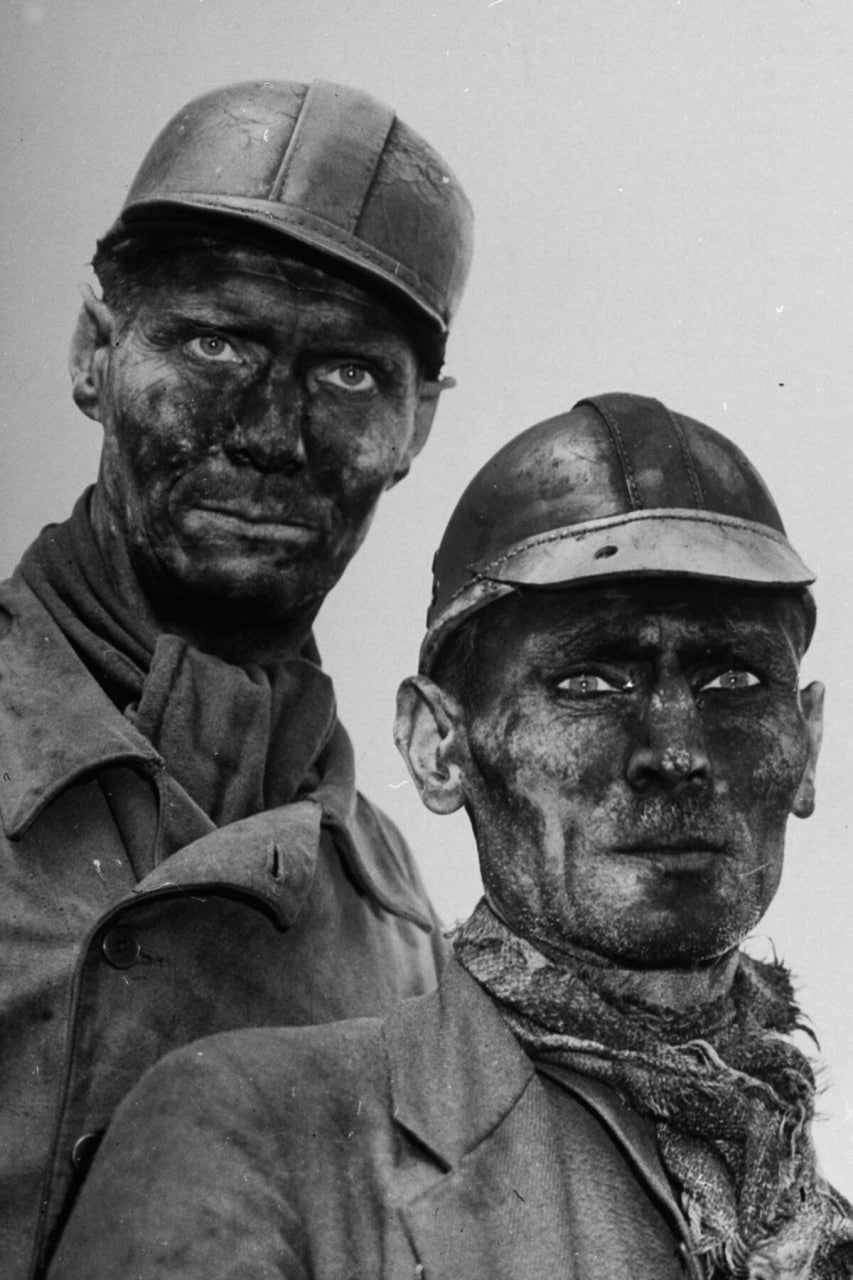
Coal miners into a coal mine elevator after a day of work in Belgium, 1900
Lately, this image has been shared all over social media along with a long historical explanation. The photo, allegedly, shows early 15th-century Irish slaves who were sold to English settlers in the Caribbean.
Here are a few tips before we consider this post.
First of all, don’t trust social media posts from a random guy online. Second, ask for citations and sources. Third, the first recorded photograph was taken in the early 19th-century. Unless someone took a time machine back a few hundred years, this photo could not be of 15th-century Irish slaves. If that is not a red flag, I’m not sure what is. Though the exact origins of this photo are unknown, it’s likely an early 20th-century photo of Italian miners in a Belgium mine. These workers, though probably working in inhumane conditions, were not slaves.
Though the Irish, and virtually all more impoverished peoples, experienced difficult indentured servitude and inhuman working conditions, the difficulties of Industrial Revolution labor was shared by every ethnicity. There was no race-based slavery or hereditary slavery of the Irish.
Indentured servitude was often a brutal and abusive system. This system contractually obligated the servant to work without pay in exchange for some benefit. Usually, this benefit was passage to the Americas or some other benefit such as room and board or a large loan. While the Irish servants of the Caribbean certainly were subjected to severe brutality, their servitude was contractual. In other words, they agreed to the servitude. I’ll also readily admit that, at times, indentured servitude could become de facto slavery. The key difference is that when indentured servitude became de facto slavery, it was an abuse of the system. And even then, there was hope. For the African slave trade, slavery was the system and the system was abusive in its very nature.

Even the abused and mistreated Irish servants had legal recourse. The Irish could go to the law and the courts for complaints and the law recognized their fundamental human rights. Though I’m confident that the poor had an uphill legal battle against their abusive economic betters, the fact that a legal way of making complaints and pressing charges existed for them places them in an entirely different category from African slaves.
Irish and poor servants either had a set date of freedom or a set amount of money to pay off. They regularly paid off their debt and earned their freedom.
Contrasting their situation with African slaves, slaves were not legally seen as humans. They were treated as property, not servants. Unlike indentured servants, they never agreed to their servitude. They had no legal recourse, could not press charges or file complaints, could be forcibly bred like animals, could not earn their freedom, and their children were also enslaved.
Lastly, their dehumanization was racially based. Though all peoples have been mistreated at various times and although inhumane and dangerous labor practices were the norm for the vast majority of human history, it is either ignorance or outright deception to compare the plight of poor white people to the dehumanizing slavery of Africans during the Transatlantic slave trade. It is also true that the Irish were enslaved along with all other peoples during the early Middle Ages and during Antiquity. However, please note, that this myth being shared by bona fide white supremist groups is not making the argument that slavery has existed at some point in time everywhere. It is specifically obfuscating 15th through 20th-century indentured servitude into something that it’s not. It is specifically equating the indentured servitude of whites with the racial based and hereditary slavery of Africans.

Speaking of deception, it is no coincidence that this falsified meme of “Irish Slavery” is making the rounds again. It is not a mistake that amid our nation dealing with racial injustice against African Americans that some have made attempts to “level the playing field” by creating and sharing lies about history. The spreading of the “Irish Slavery Myth” is political.
The pseudo-historical post being shared around concludes with this line.
“But, if anyone, black or white, believes that slavery was only an African experience, then they’ve got it completely wrong.
Irish slavery is a subject worth remembering, not erasing from our memories.”
With this closing, those who create and share such fabrications show their hand. The Transatlantic slave trade was a distinctly African experience. Though much could be said about the abuses in the indentured servitude system, conflating what the Irish experienced with what the Africans went through is not only a lie, it’s a politically charged lie designed to justify and minimize the sin of chattel slavery and racism.
Christians must uphold truth, and white Christians are only showing self-interest, political partiality, and their ignorance when memes such as this are shared. We should do a lot better.
